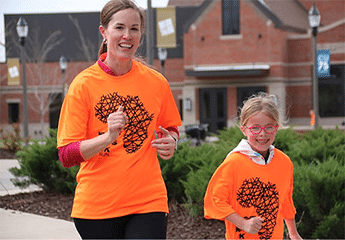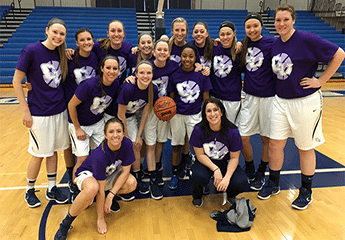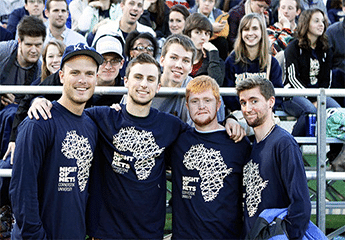CU Hosts Earl Young Invitational
On Friday, Feb. 26, Olympic gold medalist Earl Young stepped onto the stage in Christ Chapel to share his story.
Earl Young won a gold medal in the 1960 Rome Olympic games as the youngest member of a 4×400 relay team, breaking the Olympic record and tying the world record. Only 19 years of age at the time, he was the picture of health. But when he went to visit the doctor because of some persistent sniffles in 2011, he discovered that he had acute myeloid leukemia, an aggressive type of blood cancer. The doctors told him that he had three months to live.
Earl’s life was saved in January 2012 when he received a bone marrow transplant from a woman in Germany. Earl now travels around to various universities and schools, encouraging students and staff to register to be donors, with the possibility of saving someone else’s life.
When Dr. Gerald Longjohn, vice president of Student Development, attended the CCCU Senior Student Development Office’s Conference in Chicago last summer, he heard about the Earl Young Foundation and Earl Young’s mission to increase the number of bone marrow donors and increase awareness for the delete blood cancer company. He knew that this initiative was something that the Cornerstone community should be involved in.
A team of Cornerstone staff met in October to finalize the idea. Scott Courey, director of Counseling, Health, and Wellness, wanted to ensure that the Earl Young Invitational tied in elements from the new wellness initiative, including emotional and spiritual health. Scott partnered with the track team for the campaign, rallying four teams of four students each to pray for a specific family that has been affected by cancer. The 4×400 prayer relay was kicked off when Earl spoke at chapel. One member from each of the four teams received a baton and committed to pray for 16 days (about 400 hours) for the family with which they are partnered with. When they are finished, they will pass the baton on to another team member, and this will continue throughout the semester. This will be a way of supporting the families in prayer as their loved ones battle with cancer.
Another important part of the initiative was to encourage students to sign on as registered bone marrow donors. This is a simple process which includes filling out some brief paperwork and swabbing the inside of your cheeks for 30 seconds in order to collect DNA. Our goal was to get 400 students and staff and faculty members to register. Once you are in the database as a donor, if your DNA is matched with a patient who needs a donor, you will undergo either a simple peripheral blood stem cell collection (in 75% of cases) or a surgical outpatient bone marrow donation procedure (in 25%) of cases. Although there are five million registered donors worldwide, the chances of being a match are slim, and six out of 10 patients will not receive a bone marrow transplant.
Scott Courey kicked off the initiative in chapel on Wednesday, Feb. 17. The Earl Young Invitational became an even more meaningful experience for Scott when his daughter Elyn developed a blood-related disorder in the fall. He wanted to make sure that students understood the importance of the decision to become a donor. With the help of Christine Hill, Sharon Haan and many other volunteers, Cornerstone was able to register 400 potential donors. The goal was met, but more importantly, our students have the potential to save lives.
“As Christians, we believe that prayer is important and that we are called to pray,” explains Jeanna Boase, an intern at the Well, Cornerstone’s counseling center. The prayer initiative was purposed to encourage students to continue to pray for those battling with cancer.
As we celebrate 75 years of higher education at Cornerstone, we also celebrate the lives of those such as Earl Young, those who seek to make a difference in the lives of others because of what God has done for them.






